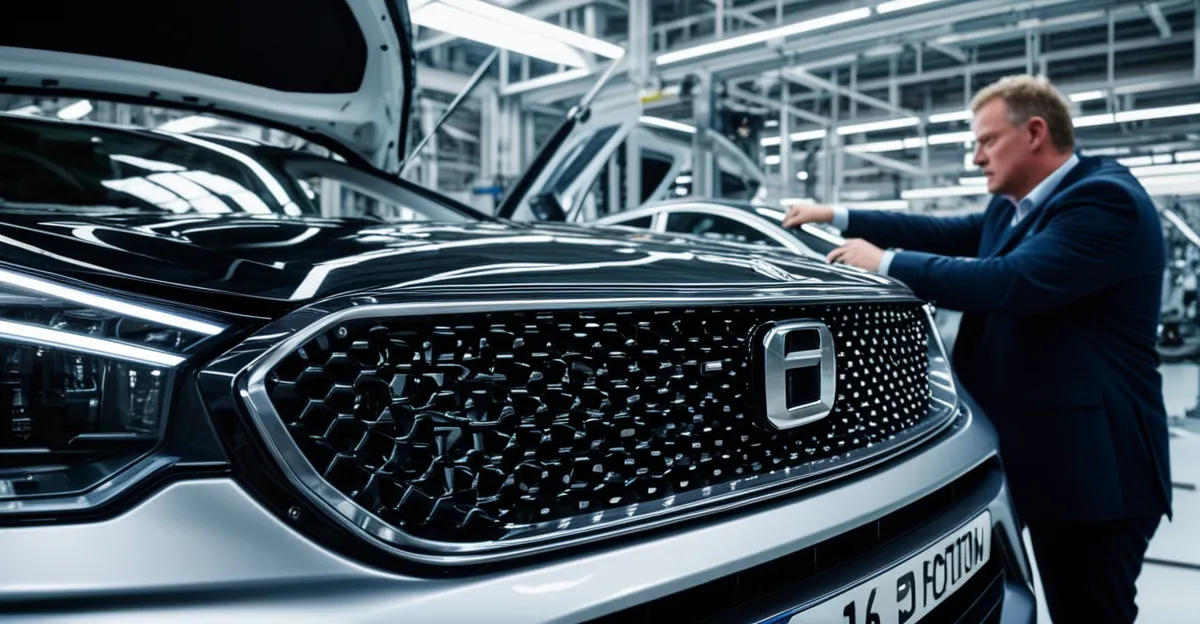Technological Evolution in UK Car Manufacturing
UK car manufacturing history is marked by significant technological advancements that have shaped the industry’s trajectory. From the earliest manual assembly lines to the adoption of automated and digital processes, the sector has continuously evolved to meet increasing demand and quality standards. Key milestones include the introduction of conveyor belts in the mid-20th century, which revolutionised production speed and consistency. Later, the integration of computer-aided design (CAD) and manufacturing (CAM) allowed for greater precision in vehicle components and assembly.
Leading UK automotive firms such as Jaguar Land Rover, MINI, and Nissan have driven this progress by investing heavily in technological innovation. These companies transitioned from predominantly manual techniques to automated systems, enhancing both productivity and product quality. The shift involved embedding robotics in assembly lines and adopting digital tracking for parts and processes, ensuring tighter control over manufacturing standards.
Also read : How are UK automotive companies responding to the global semiconductor shortage?
In recent decades, the UK car industry progress has been further accelerated by the embrace of Industry 4.0 principles, blending automation with data analytics and connected machinery. This technological evolution continues to position the UK as a hub for advanced car manufacturing, leveraging its historical foundation while pushing forward into the future.
Core Innovations: Robotics, Automation, and AI
Robotics in UK car manufacturing have transformed traditional production lines into highly efficient, automated systems. The shift from manual to automated assembly lines marked a pivotal technological advancement, significantly boosting productivity while reducing human error. Leading firms like Jaguar Land Rover and Nissan were among the first to adopt robotics, integrating robotic arms for welding, painting, and component installation to streamline processes.
Also to see : How are UK car manufacturers adapting to new emissions regulations?
Automation extends beyond mechanical tasks. Artificial intelligence (AI) now plays a critical role in optimising manufacturing workflows and enhancing quality control. AI-powered systems analyse real-time data to identify defects early, predict maintenance needs, and dynamically adjust operations for maximal efficiency. This integration demonstrates how Industry 4.0 blends robotics and AI to elevate UK car manufacturing history into a digitally driven, precise ecosystem.
Notable UK factories showcase these innovations, with smart sensors and connected machinery forming a networked environment. This transformation from manual processes to automated, AI-supported manufacturing underlines the UK’s ongoing car industry progress. The continuous embedding of these core technologies ensures UK car manufacturing remains competitive, adaptable, and ready for future advancements.
The Rise of Electric and Low-Emission Vehicles
Electric vehicles UK production has surged as part of the broader push toward sustainable car production and emissions reductions. Responding to regulatory pressures and consumer demand, UK manufacturers are investing heavily in electric vehicle technology. Advanced battery developments, including improvements in energy density and charging speed, underpin this transformation. Powertrain innovations, such as electric motors optimized for efficiency and durability, are also central to EV innovation.
Key UK projects highlight this shift. For example, manufacturers have launched dedicated EV production lines and established partnerships to develop next-generation lithium-ion batteries. These initiatives demonstrate how the UK car manufacturing history is adapting to meet environmental and technological challenges. As a result, the UK is becoming a hub for cutting-edge electric vehicle manufacturing.
Technological advancements in electric vehicles UK production not only reduce emissions but also enhance vehicle performance and drive quality improvements. These developments represent a critical phase in the UK car industry progress, signaling a shift from traditional internal combustion engines to cleaner, more sustainable alternatives. This focus ensures the sector remains competitive and aligned with global sustainability goals.
Productivity and Quality Gains
Technological advancements in UK car manufacturing history have directly contributed to notable manufacturing productivity and car quality improvements. Automation has been a primary driver of increased production efficiency. Automated assembly lines reduce human error and speed processes, enabling factories to produce more vehicles in less time without compromising quality.
Precision enhancements from computer-aided design and robotics ensure parts fit accurately, improving product reliability and reducing the need for rework. These technological benefits extend to real-time quality control systems that detect defects early, preventing faults from progressing down the line. Such measures boost the overall consistency of UK car manufacturing outputs.
Industry benchmarks reveal steady improvements in UK production performance. For example, leading firms report significant reductions in cycle times and defect rates following the integration of smart automation. This progress has helped maintain competitiveness amid evolving global standards.
In summary, the fusion of automation with advanced quality assurance has delivered tangible productivity and quality gains in UK car manufacturing history. These continuous technological advancements underpin the sustained car industry progress seen today and set a foundation for future enhancements in manufacturing efficiency and vehicle excellence.
Impact on Employment and Workforce Skills
The rise of workforce automation in UK car manufacturing history has significantly transformed jobs and skills. Automation and robotics have displaced some manual roles, but they have also created new opportunities requiring technical expertise. Workers must now operate, maintain, and program complex automated systems, shifting the demand towards higher-skilled positions.
As automation increases, training and upskilling initiatives have become vital. UK automotive firms collaborate with vocational colleges and industry bodies to equip employees with skills in robotics in UK car manufacturing, software operation, and data analysis. These efforts ensure the workforce adapts alongside technological advancements and remains competitive.
Employment trends show a restructuring rather than a decline. More roles focus on digital proficiency and problem-solving, reflecting the integration of artificial intelligence and automation. This transition poses challenges but also offers rewarding career paths for those prepared to meet new demands.
In short, the sector’s car industry progress depends heavily on evolving workforce skills. Continuous investment in education and training will be crucial to balance productivity gains with employment quality and to support a sustainable future for UK automotive employment.






